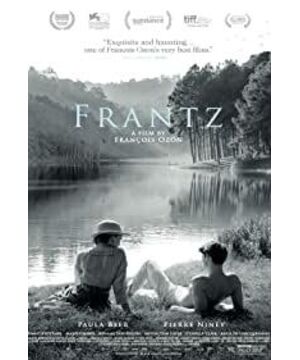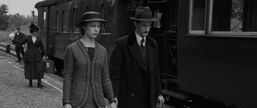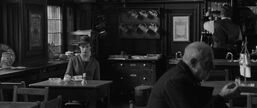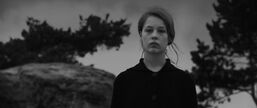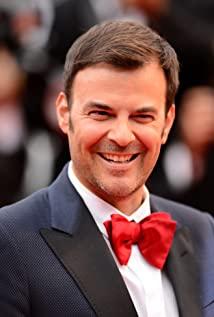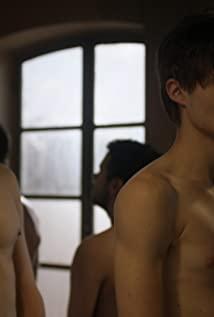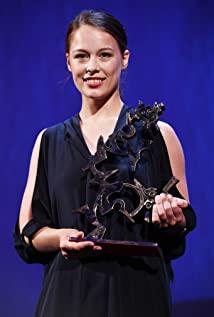The black and white tones of the movie are beautiful, with the shimmering hair tips, the shadows of the trees on the shoulders, the light of the water in the eyes, and the flowing light and shade. The color part does not exactly correspond to memories, nor does it appear randomly. It seems to be summed up as the moment when the long-depressed inner silence after losing the beloved one is suddenly re-infiltrated by the real sense of life. Before confessing the truth, Adrian, as a French "intruder" in a German town after the war, created an opportunity for Anna and Franz's parents to reconnect with Franz before they were alive. Looking back at the past events that are no longer possible in a less tragic way, comforting them that Franz will still be remembered, even if he is dead.
Regarding love, the film is mainly based on the narrative from Anna's perspective. Whether it's a fictitious memory of Paris, a nocturne in C-sharp minor, or a long walk on the river beach, combined with Adrian's temperament and preferences that are too similar to Franz's, empathy is almost inevitable. Anna readily accepted Adrian's various invitations, and her look became more and more obsessed and reluctant when she saw him, until the truth came to light, her heart was suffering, but her love did not change. She couldn't make herself hate this young man who killed his fiance on the battlefield and came all the way to beg for forgiveness out of confession. She took up all the burden, fabricated two-way lies to Franz's parents and Adrian, and even went to France to find Adrian after the letter returned.
Once suspected that Adrian's feelings for Anna were more guilt, his invitation and confession were just compensation for guilt, and his thoughtfulness and tenderness were just a spontaneous expression of upbringing. Of course, maybe he had fallen in love with Anna long ago, but out of kindness and weakness, and out of unforgiven pain after confession, he didn't dare to imagine that Anna would like him, so he chose to give up.
So Anna came to France alone and found his home after several rounds, thinking that she finally found a place for her longing and love, but finally found out that Adrian had accepted her mother's arrangement to inherit the family property, and she was going to marry someone a month later. The sharp turnarounds in the French part are really heartbreaking. At the end of the film, Anna learns that there is no place for her to leave. Adrian grabs her arms and persuades to stay overnight and leave again in the morning. When the two faces close, she wants to kiss, but Adrian avoids it hastily. Perhaps he suddenly realized that at that time, Anna came to him not to express forgiveness, but out of some desperate courage, regardless of the incomprehension and suspicion along the way, to confirm his love with him. But he was still scared. In the face of his family business and his mother, he was just a child who was unable to defend himself and let him dominate. The next day, Adrian and Anna held her in their arms when they were parting. Anna couldn't help crying. Then the two kissed goodbye. Adrian called Anna's name. She had mixed sorrows and joys, but only said: "It's too late."
About the war. The film created a nearly symmetrical pattern, so that Adrian in Germany and Anna in France experienced similar rejection and alienation, including the passionate national anthem in the tavern, the glaring and cold eyes in public, etc.; The mouth of the character tells the contradiction between patriotism, victory and death, as Franz's father said: We all celebrate the deaths of children equally stupidly.
About the art of top priority. At the beginning of their acquaintance, Anna and Adrian were in front of Franz’s tomb. She put down the bouquet, got up and read Verlaine’s "Autumn Song" in French: "Dull and boring/bewildered/bells are swaying/the past is like smoke /Reappear in front of my eyes/My tears are like rain..." She said that Franz loved to read Verlaine when he was alive, and she liked Rilke. Rilke also has a poem "Autumn Sun": "Whoever is alone at this time will be lonely forever, and he will wake up, read books, write long letters, and wander on the tree-lined road without stopping, with fallen leaves flying." The two poems complement each other. It just echoes Anna's normal life after losing Franz. When it comes to poetry and life and death, I can't help but think of Brodsky. He is accustomed to looking at many encounters in life from the inevitable end of death, thinking that only language can fight against the passing of time, and poetry is the highest form of language. Even though life and death are separated in the movie, poetry is still the bond that maintains feelings. It connects the writers and readers, and implicates infinite nostalgia and anticipation. Anna returned home after being rescued from suicide and opened the newly arrived book, with Verlaine's name printed on the title page. "Autumn mourns/like a violin/crying", the image of the violin is equally important in the story. Poetry, music, and painting are irreplaceable clues throughout the film, which are not only aesthetically pleasing to the eye, but also extend the historical depth of individual stories.
At the end, Anna refers to Manet's "Suicide" throughout the film as a source of power to sustain life, which is as unthinkable as the theme of the painting itself. After the movie ended, I was stunned for a long time in the position: I thought that she would choose to end her life half a minute ago. Later, I thought that Anna had heard Adrian's conversation with his mother, and probably had long been aware of his weakness and tenderness, so she received a loving response when she was parting, and that she was equated with salvation rather than despair of falling to the bottom of the valley. Adrian was an intruder in Anna's life from the beginning, and from the end, he was also the rescuer who released Anna from the closed life of endless nostalgia in the past. Anna went from Germany to France, Adrian completed this mission without knowing it, Anna in a sense killed the self who indulged in loss and was suffocated by responsibility. She comforted Franz's parents with lies, and gave herself true freedom behind this fiction.
Art is fiction, and fiction is life.
View more about Frantz reviews


